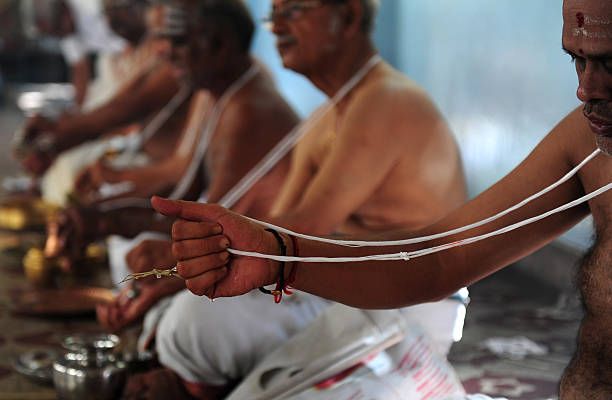FWP:
SETS == BASKIH
RELIGIONS: {60,2}
ROAD: {10,12}
For background see S. R. Faruqi's choices. This verse is NOT one of his choices; I thought it was interesting and have added it myself. For more on Ghalib's unpublished verses, see the discussion in {4,8x}.
On the zunnār , see {60,8}.
The verse takes clever advantage of baskih with its possible meanings of either 'although' or 'to such an extent' (on these see {1,5}). By no coincidence, they both work intriguingly with the second line. If we take baskih to mean 'although', then despite the fact that unbelief and belief have been inverted or overturned somehow, they still remain in touch with each other. And if we take baskih to mean 'to such an extent', the effect is that unbelief and belief have been jumbled together so radically that their dust has mingled.
What kind of vīrānī would have created these effects? The commentators unanimously maintain that the cause is the expulsion of the idols from the Ka'bah. (On this see {231,6}.) Nothing in the verse requires us to think so, but it's surely the most piquant possibility. And it has the advantage of accounting for the direction of travel: sacred desert-dust reaches the precincts of idol-temples, rather than the other way around.
Gyan Chand to the contrary, the long, narrow sacred thread as a long, narrow (and dusty) 'road' is perfectly plausible. In fact in {60,8} the same metaphor is used very explicitly.

Asi:
Since because of desolation unbelief and belief have become entirely topsy-turvy, today things are such that the dust of the desert of the Ka'bah is found as far as the street of the sacred thread. The meaning is that the revolving of time has spread decline/decay to such an extent that today infidelness and Islam have become the same.
== Asi, pp. 237-238